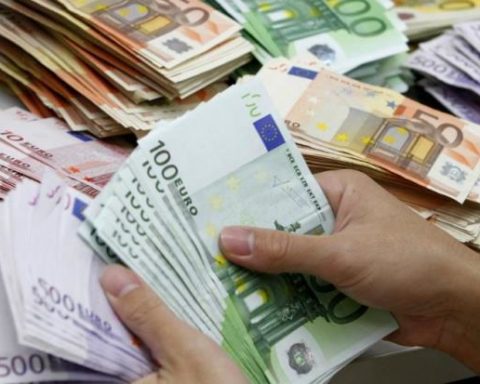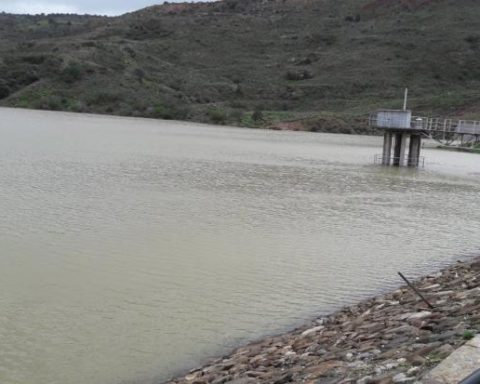Cold wind blowing over Cyprus green energy goals

A recent revelation over inflated subsidies to wind parks is the tip of the iceberg amid wrong choices and failure of authorities to adopt Renewable Energy Sources as an alternative to fossil fuels, say experts.
Cyprus is failing to meet its EU energy goals for 2020 while there is no system to promote the use of RES and lessen the economy’s dependence on coal and petrol-based fuels.
The “wind park scandal” is said to have cost the taxpayer some €55 mln in overpayments to RES producers, say officials.
State-aid Commissioner Theophanis Theophanous described it as the “biggest scandal of our time” referring to the rates paid to producers of electricity from renewable energy sources (RES).
Under a 2008 cabinet decision, investors in wind parks were guaranteed 16.6 cents per kilowatt-hour (kWh) over a 20-year period.
That decision initially featured a rate negotiation clause, noting that the rates would be reassessed every four years, foreseeing that the rate would drop by 0.5 cent upon each reassessment.
The decision was notified to the European Commission, whose feedback is required where subsidy issues are concerned.
But a special report by Auditor General Odysseas Michaelides found that a ministerial committee (commerce and energy) tasked with overseeing RES affairs subsequently amended the rate policy, scrapping the renegotiation clause.
This resulted in wind park owners benefitting significantly more than was originally envisaged.
The new rate was never communicated to EU authorities, which means the European Commission is still under the impression the Cyprus government can renegotiate RES rates, whereas in practice that is not the case.
Green MP and former Environment Commissioner Charalampos Theopemptou told the Financial Mirror that the scandal is just the “tip of the iceberg”.
“Let’s start from the beginning…The million-dollar question is how did the authorities come up with the 16.6 cent guarantee for each kWh?”
He argued that no official has come out to give a detailed explanation as to how they came up with the rate.
Theopemptou said that even today the method of rates given out to RES power producers is based on a formula designed by the Electricity Authority of Cyprus which has never publicly disclosed it for outsiders to comprehend.
“They have never explained in detail how they calculate the avoidance cost, and this is just one of the opaque procedures carried out regarding the production of electricity with RES.”
EAC spokesperson Christina Papadopoulou argued that the avoidance cost is determined by the Cyprus Energy Regulatory Authority, adding that there is complete transparency on the matter.
Theopemptou believes there is also a lack of transparency covering the procedures for applying to build RES facilities, be it wind farms or photovoltaic parks.
He said wind farms are not the ideal solution for promoting RES in Cyprus as to establish a profitable wind park requires a vast area, creating a number of objections as they invade nature with new roads and electricity pylons.
He said the obvious solution, and at near-zero cost, would be to encourage homeowners to install photovoltaic systems on their roofs.
The MP noted that with current technologies, it is even cheaper to produce electricity using solar energy than petrol-based systems.
But authorities have not encouraged such schemes by making them widely accessible.
“At the beginning they had not provide homeowners with the net metering option, which would mean that they could feed the system with energy to produce real-time and make use of it when they wished too,” said Theopemptou.
“Now they are finally trying to promote solar energy and encourage homeowners to install photovoltaic systems as a last-minute pitch to come as close as possible to the country’s EU 2020 goals.”
Feeling that RES energy production has come under unfair attack, the Federation of Employers and Industrialists are calling on the Commerce Ministry to shed light on the matter by releasing related data.
Talking to the Financial Mirror, Anthi Charalambous, Head of ΟΕΒ’s Energy & Environment Service said that caution is advised when talking about RES.
Investments made by private initiative over the past two decades have helped Cyprus to come closer to its 2020 targets for increasing its share of renewable energy and reducing greenhouse gas emissions.
“The majority of renewable energy technologies today can be almost as competitive as conventional ones, which was not the case 15 years ago. That is why Cyprus adopted similar financial support measures as other EU states,” said Charalambous.
She noted that renewable energy support mechanisms have been targeted by various actors who blame various mishaps for the increase of the cost of electricity to consumers.
Charalambous said that it is necessary to understand the financial aspects of the renewable energy sector in order to make it clear that state support is really needed to achieve climate and energy goals and to achieve long-term benefits and that this does not lead to uncontrolled profits.
She argued that wind energy can be very efficient as wind generators can produce energy day and night, adding that decisions taken back in the past were made by officials who had very few options before them.
There was also the fines that Cyprus may have had to pay if it did not start taking steps towards making its economy less dependent on fossil fuels.









